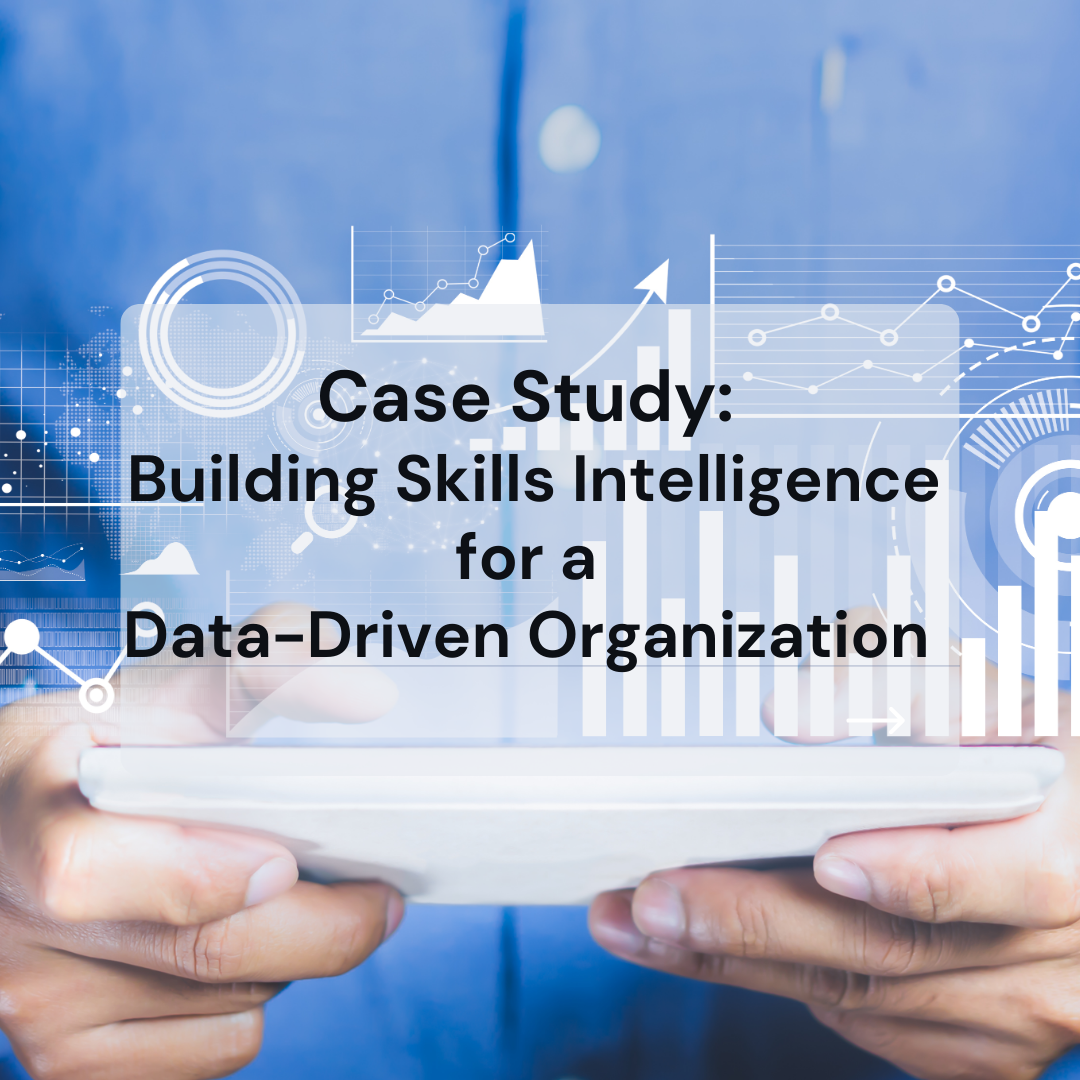Why and How to Build Skills Intelligence in an Organization
In today’s rapidly evolving business landscape, skills intelligence is becoming essential for organizational growth and resilience. Skills intelligence refers to an organization’s ability to understand, track, and strategically utilize the skills of its workforce to meet both current and future business needs. With the pace of technological advancements and changing market demands, a well-developed skills intelligence system ensures that companies can adapt, innovate, and stay competitive.
This blog explores the importance of building skills intelligence and offers practical steps on how organizations can establish it. We'll also present a case study to demonstrate the real-world impact of skills intelligence on organizational performance.

Why Skills Intelligence Matters
- Informed Decision-Making With accurate data on the skills that exist within an organization, leaders can make better decisions about talent deployment, development, and acquisition. This data enables more strategic hiring and succession planning, reducing the risk of skills gaps as roles evolve.
- Enhancing Employee Engagement Employees want to feel that their skills are valued and that they have opportunities for growth. A well-developed skills intelligence system allows organizations to identify skill gaps and invest in targeted training programs that align with both employee aspirations and company goals. This alignment fosters greater employee engagement and retention.
- Improved Agility and Innovation The ability to quickly adapt to market changes hinges on having the right skills at the right time. By continuously updating and analyzing skills data, organizations can pivot more easily, innovate faster, and remain competitive in an unpredictable market.
- Optimized Learning and Development (L&D) Many companies struggle with one-size-fits-all training programs. Skills intelligence enables personalized learning paths based on employees’ existing competencies and growth potential. This focused approach ensures that learning investments yield tangible results.

- Start with a Skills Inventory Begin by mapping out the current skills of your workforce. This can be achieved through surveys, self-assessments, manager evaluations, or utilizing technology platforms that gather and analyze skills data. The key is to understand what skills you currently have and identify any critical gaps.
- Align Skills with Business Goals Once you have an inventory, align it with your organizational objectives. Determine what skills will be necessary to meet future goals and how your current skills inventory measures up. This alignment is crucial to ensure that your efforts in developing skills are strategically focused.
- Leverage Data-Driven Tools Implementing tools that automate the collection and analysis of skills data is essential. AI-powered platforms can provide real-time insights into the skills available across the organization, track the progress of development efforts, and predict future skill requirements based on industry trends.
- Create a Culture of Continuous Learning Building skills intelligence is not a one-time project. It requires creating a culture where learning and upskilling are ongoing processes. This can be done by fostering internal mobility, encouraging peer-to-peer learning, and providing access to high-quality development resources that match your skills strategy.
- Measure and Refine As with any strategic initiative, it’s important to measure the outcomes of your skills intelligence efforts. Regularly track KPIs such as skill gap closure, employee performance, and talent retention. Use these insights to refine your approach and stay agile as the organization evolves.

Challenge An insurance company was experiencing challenges with digital transformation. Despite investing in cutting-edge technology, they struggled to optimize processes and innovate due to a lack of data literacy and analytics skills within the organization. They realized that the gap in skills was inhibiting their ability to fully leverage new tools and make data-driven decisions.
Solution The company implemented a skills intelligence platform to assess the current skill levels of its workforce, focusing specifically on data literacy. They identified key areas where upskilling was necessary to support their business objectives, including data analysis, machine learning, and business intelligence.
Based on this analysis, the organization rolled out personalized learning plans for employees, matching each individual’s current skill level and potential career trajectory. The system tracked progress and provided insights into the development of critical skills in real time, enabling leaders to make informed decisions about resource allocation and team restructuring.
Outcome Within 12 months, the company saw a marked improvement in employee performance and decision-making across departments. Data literacy scores increased by 35%, and teams reported a greater ability to collaborate on data-driven projects. The organization also experienced a 20% reduction in external consulting costs, as they were now able to handle more complex data tasks internally. Moreover, employee engagement and retention rates improved as individuals saw clear paths for career development.
This case demonstrates how skills intelligence not only helps close critical skills gaps but also drives innovation, boosts productivity, and increases overall employee satisfaction.

Building skills intelligence is a strategic imperative for organizations looking to stay competitive in a fast-changing market. By leveraging a structured approach—starting with a thorough skills inventory, aligning it with business objectives, and utilizing data-driven tools—companies can unlock their workforce’s full potential. As seen in the case study, the right skills intelligence strategy can lead to measurable improvements in performance, innovation, and employee retention.
Organizations that embrace this approach will be better positioned to meet future challenges, drive growth, and create a culture of continuous learning. Skills intelligence is not just a tool for today’s problems, but a strategic asset for long-term success.
About the Author.
Sharala Axryd is passionate about data driven business transformations & driving data science education in ASEAN. A natural thought leader, she is a highly-sought-after speaker for conferences with topics ranging from analytics to women in STEM.





